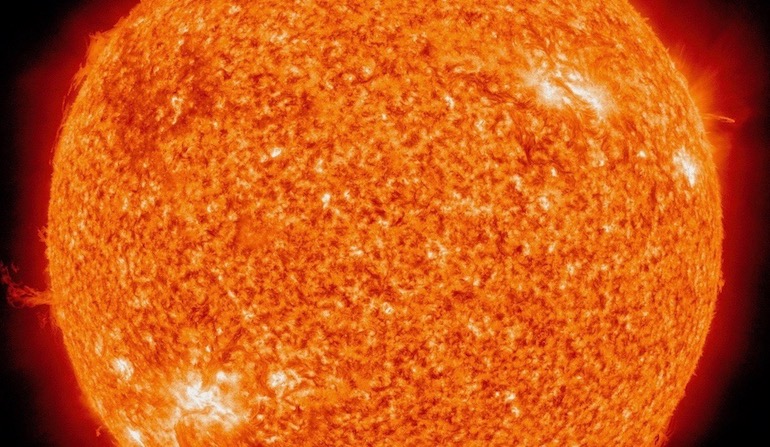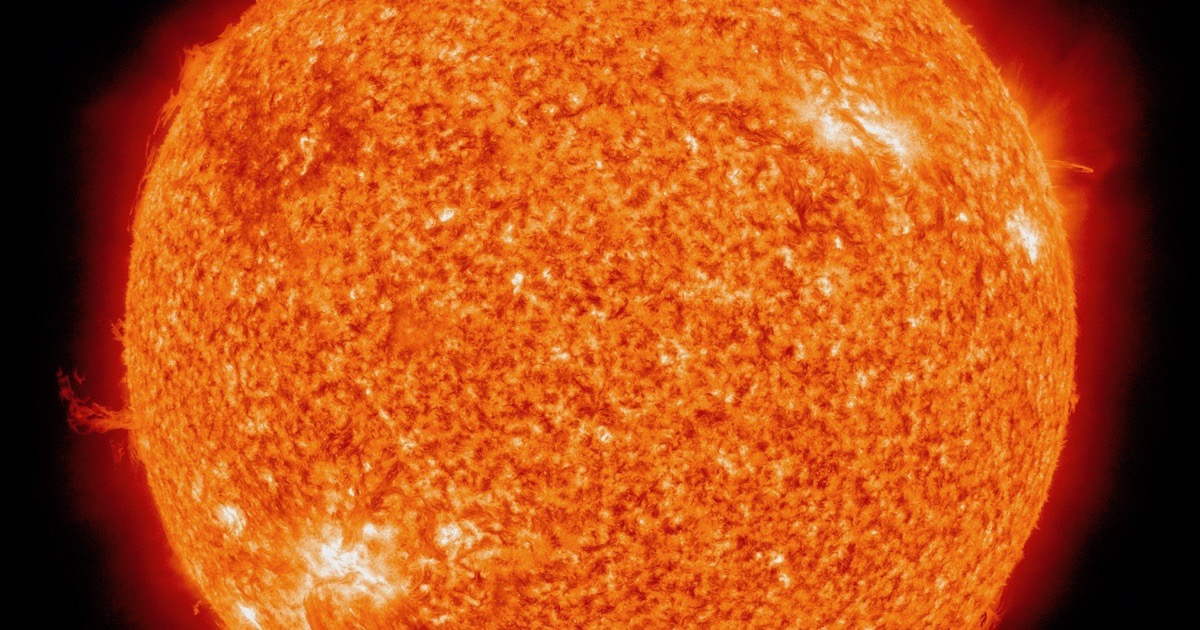 Physics, Earth & Space
Physics, Earth & Space
The Second Law Argument: A Timeline


As many readers may know, one of my frequent themes, in Evolution News posts as well as in four peer-reviewed and two editor-reviewed publications I have written over the last 17 years, has been the second law argument against unguided evolution. Here is a little timeline outlining the history of this argument.
1. Scientists observed that the temperature distribution in an object always tends toward more uniformity, as heat diffuses from hot to cold regions. They defined a quantity called “entropy” to measure this randomness, or uniformity. The first formulations of the second law of thermodynamics stated that this thermal “entropy” must always increase, or at least remain constant, in an isolated system.
2. It was realized that the reason temperature tends to become more uniformly (more randomly) distributed was purely statistical: a uniform distribution is more probable than a highly non-uniform distribution. Exactly the same argument, and even the same equations, apply to the distribution of anything else that diffuses. When carbon diffuses in a steel, for example, one can define a “carbon entropy” in the same way as thermal entropy, and show, using the same equations, that carbon entropy must always increase, or remain constant, in an isolated system.
3. Since the reason thermal and carbon (and chromium, etc.) distributions become more uniform in an isolated system is that the laws of probability favor more random, more probable, states, some scientists generalized the second law with statements such as “In an isolated system, the direction of spontaneous change is from order to disorder.” For these more general statements, “entropy” was simply used as a scientific-sounding synonym for “disorder” and many physics texts gave examples of irreversible “entropy” increases that had nothing to do with heat conduction or diffusion, such as tornadoes turning towns into rubble, explosions destroying buildings, or fires turning books into ashes. In a 1970 Smithsonian article, Isaac Asimov wrote:
We have to work hard to straighten a room, but left to itself, it becomes a mess again very quickly and very easily…. How difficult to maintain houses, and machinery, and our own bodies in perfect working order; how easy to let them deteriorate. In fact, all we have to do is nothing, and everything deteriorates, collapses, breaks down, wears out — all by itself — and that is what the second law is all about.
4. Some people then said, what could be a more spectacular increase in order, or decrease in “entropy,” than civilizations arising on a once-barren planet. They said the claim that entirely natural causes could turn dust into computers and libraries was contrary to these more general statements of the second law.
5. The counter-argument offered by evolutionists was always: but the second law only says order cannot increase in an isolated system, and the Earth is an open system because it receives energy from the sun. So computers arising from dust here does not violate the second law, as long as the increases in order here are “compensated” by decreases outside our open system. Asimov, for example, in his Smithsonian article says:
How could the human brain develop out of the primeval slime? How could that vast increase in order (and therefore that vast decrease in entropy) have taken place?…. Remove the sun, and the human brain would not have developed…. And in the billions of years that it took for the human brain to develop, the increase in entropy that took place in the sun was far greater; far, far greater than the decrease that is represented by the evolution required to develop the human brain.
Common sense tells us there is something terribly wrong with this “compensation” argument. My article “Entropy, Evolution and Open Systems,” published in Biological Information: New Perspectives, the proceedings of a 2011 meeting at Cornell University, included a section entitled “The Common Sense Law of Physics,” which used a little humor to show how silly Asimov’s widely used compensation argument really is:
I was discussing the second law argument with a friend recently, and mentioned that the second law has been called the “common sense law of physics.” The next morning he wrote: “Yesterday I spoke with my wife about these questions. She immediately grasped that chaos results in the long term if she would stop caring for her home.”
I replied: “Tell your wife she has made a perfectly valid application of the second law of thermodynamics. In fact, let’s take her application a bit further. Suppose you and your wife go for a vacation, leaving a dog, a cat, and a parakeet loose in the house (I put the animals there to cause the entropy to increase more rapidly, otherwise you might have to take a much longer vacation to see the same effect). When you come back, you will not be surprised to see chaos in the house. But tell her some scientists say, ‘But if you leave the door open while on vacation, your house becomes an open system, and the second law does not apply to open systems…You may find everything in better condition than when you left.’ I’ll bet she will say, ‘If a maid enters through the door and cleans the house, maybe, but if all that enters is sunlight, wind, and other animals, probably not.’”
Imagine trying to tell my friend’s wife that, provided her house is an open system, the fact that chaos is increasing in the rest of the universe — or on the sun, provided sunlight enters through the door — means that chaos could decrease in her house while she is gone. Even if the door is left open, it is still extremely improbable that order in the house will improve, unless something enters that makes this not extremely improbable — for example, new furniture or an intelligent human.
But while most people could see the absurdity of the compensation argument, they did not understand what “entropy” was and thus were intimidated into silence by scientists like Richard Dawkins, who says, “When creationists say, as they frequently do, that the theory of evolution contradicts the Second Law of Thermodynamics, they are telling us no more than that they don’t understand the Second Law… There is no contradiction, because of the sun!”
6. In several publications, beginning in a 2001 Mathematical Intelligencer letter, I showed that while it is true that thermal entropy can decrease in an open system, it cannot decrease faster than it is exported through the boundary, or, stated in terms of “thermal order” (i.e., the negative of thermal entropy), in an open system thermal order cannot increase faster than it is imported through the boundary, and likewise “carbon order” cannot increase faster than it is imported through the boundary, etc. (Though I was not the first to notice this, it seemed to be a very little known fact.) Then I argued that the more general statements of the second law could likewise be generalized to open systems, using the tautology that “If an increase in order is extremely improbable when a system is isolated, it is still extremely improbable when the system is open, unless something is entering which makes it not extremely improbable.” Thus the fact that order can increase in an open system does not mean that computers can appear on a barren planet as long as the planet receives solar energy. Instead, something must be entering that makes the appearance of computers not extremely improbable, for example: computers.
7. I’m sure that physics texts are still being written that apply the second law to tornadoes and explosions and fires, and still say evolution does not violate these more general statements of the second law because they only apply to isolated systems. But I have found that after reading my writings on the second law (for example, my accepted and withdrawn-at-the-last-minute Applied Mathematics Letters article, or the video below) no one wants to talk about isolated and open systems. They all now say, the second law of thermodynamics should only be applied to thermodynamics, it is only about heat. “Entropy” never meant anything other than thermal entropy, and even when physics textbooks apply the second law to more general situations, they are really only talking about thermal entropy, they now say. Whether the second law still applies to carbon entropy, for example, where the equations are exactly the same, is not clear.
8. Of course you can argue that the “second law of thermodynamics” should never have been generalized beyond thermodynamics (by physics textbook writers) and so it has no relevance to evolution. But there is obviously some law of Nature that prevents tornadoes from turning rubble into houses and cars, and the same law seems to prevent computers from arising on barren planets through unintelligent causes alone; and if it is not a generalization of the second law of thermodynamics, it is another law of Nature very closely related to the second law! I have often wished that the first physicists to generalize the second law, to say that not only temperature and carbon distributions, but everything, tends toward more probable states, had given this law a new name. That is because then it would have been more difficult to confuse the average person with references to a mysterious quantity called “entropy.” Perhaps it is not too late to rename it. Perhaps we can still call it “Sewell’s common sense law of physics”! At least, ID proponents who want to use it should be sure to call it the generalized second law.
9. I have always been careful to acknowledge, as I did in my 2017 Physics Essays article, “On ‘compensating’ entropy decreases,” that “one can still argue that the spectacular increase in order seen on Earth does not violate the second law because what has happened here is not really extremely improbable.” So why is the second law argument still important? Because that is obviously a much harder sell. Darwinists would much prefer to continue saying, “Nothing unusual about computers and libraries and Apple iPhones spontaneously arising on a barren planet. Just entropy decreasing in an open system. Happens all the time.” As my article documents, Darwinists are willing to make some astonishingly silly and illogical arguments to avoid saying what they really believe, which is that natural selection is very different from all other known unintelligent forces in the universe because it really can create spectacular order out of disorder.
Some laypeople will accept nonsense if told it is the scientific consensus because they think, “If so many intelligent scientists believe something, it can’t be as dumb as it sounds.” If it doesn’t do anything else, my new Physics Essays article serves one purpose: anyone who reads it (especially the second page) will never think that again.
Photo: The Sun, by NASA/SDO (AIA) [Public domain], via Wikimedia Commons.
